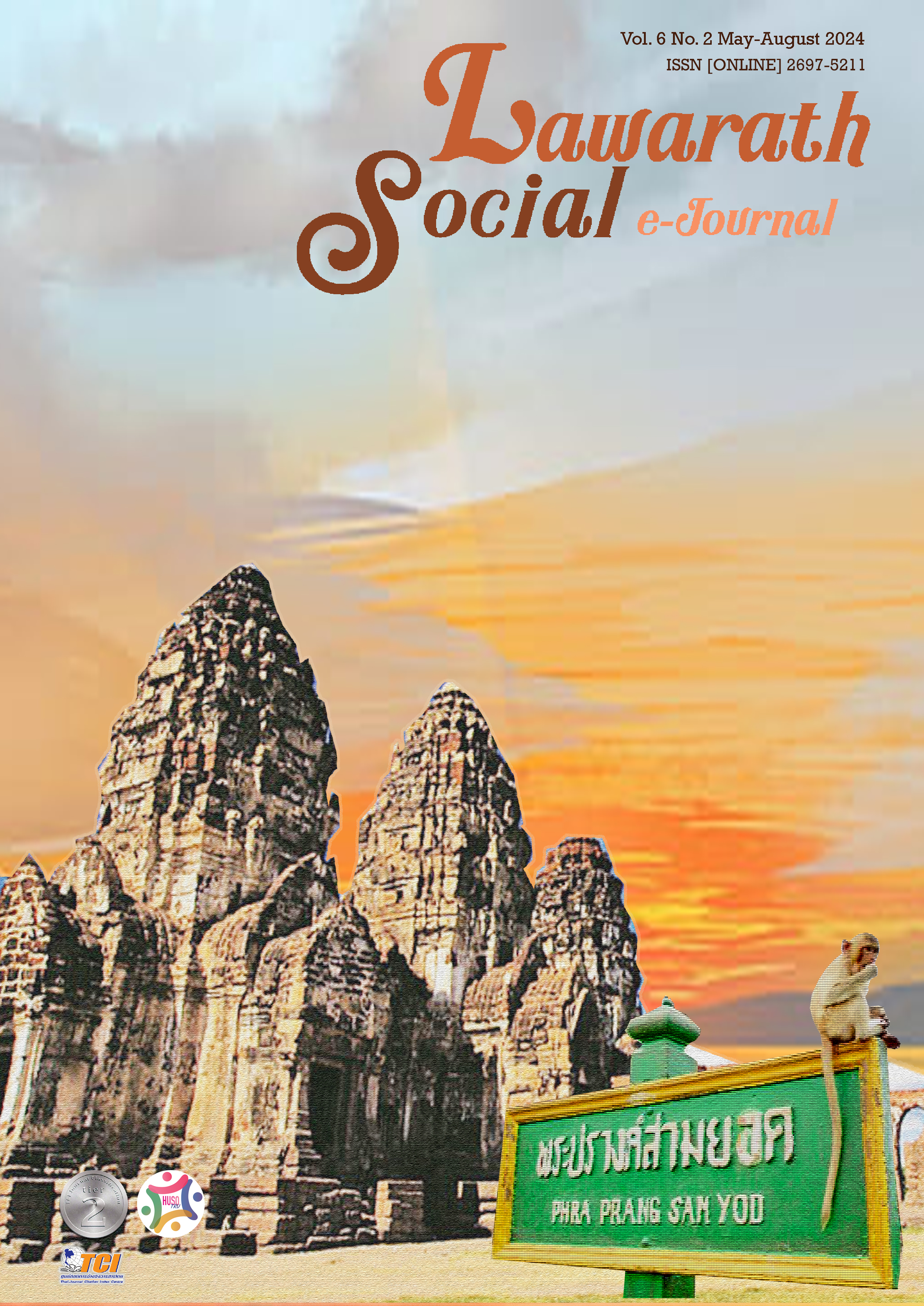Research on the Effect of Overlearning Theory on Long-Term Memory of Chinese Notional Words among Thai University Students
Keywords:
Overlearning Theory, Chinese Notional Words, Long-Term MemoryAbstract
For Thai university students who are learning Chinese, the effect of long-term vocabulary memory has a great impact on the overall effect of their Chinese learning. Especially for Thai college students who need to take the new HSK Test, vocabulary memory is undoubtedly a major obstacle in Chinese learning, and the retention of Chinese vocabulary has a direct impact on their test. Based on the ethical review of research ethics involving humans by the Kasetsart University Research Ethics Committee, this paper studied the effect of "overlearning theory" on the long-term memory of Thai university students' Chinese notional words by using literature, categorical statistics, questionnaires, and experimental methods in hopes of helping Thai university students improve the effectiveness of their long-term memory of Chinese vocabulary. The study found that the “overlearning theory” did have a positive effect on Thai university students' long-term memory of Chinese notional words within 3-9 weeks. In addition, the three main categories of Chinese notional words discussed in this paper are nouns, verbs, and adjectives. The “overlearning theory” has the highest effect on nouns, the second highest effect on verbs, and the lowest effect on adjectives in the long-term memory of Thai university students' Chinese vocabulary.
Downloads
References
Chen, H. X. (2004, October). On The Alienation and Regulation of "Over-Learning". Contemporary Education Forum, 3(10), 43-44.
Chen, W., Zhang, G. B., &Xie, T. L. (2011, June-December). Study Approach Guide for Over-Learning Method. China Education Innovation Herald, 17(10), 131-132.
Cheng, S., T., &Sun,F. (1989, June-December). On The Base Degree, Value and Principles of "Over-Learning". Education Review, 4(6), 24-28.
Driskell, J., E., Willis, R.P., &Copper, C. (1992, January-June). Effect of Overlearning on Retention. Journal of Applied Psychology, 77, 615-622.
Gao, Q. (2018). A Study on The Effect of Overlearning on High School Students' English Vocabulary Long Term Memory. Master's thesis, Qufu Normal University.
He, Q. Q. (2008, January-June). A "Cognitive-Motivational" Model of Second Language Vocabulary Instruction. Language Teaching and Research, 29(3), 70-76.
Harmer, D., & Theodore S.R. (1990). Approaches and Methods in Language Teaching. Beijing: Foreign Language Teaching and Research Press and Cambridge University Press.
Li, Y. P. (2012). A Study of The Effects of Overlearning on Long Term Memory. Master's Thesis, Southwestern University of Finance and Economics.
Liu, J. J., &Li, G.Q. (2016, January-June). On Foreign Students’ Memory of Chinese Vocabulary Based on The Over Learning Principle. Journal of Honghe University, 14(3), 116-118.
Luo, H. (2008, March-April). A Review of Research on Second Language Vocabulary Acquisition. Foreign Language Education, 29(2), 46-50.
Peng, S., X., &Qin,R. (2012, August). The Effective Use of Vocabulary Learning Strategies in High School English Teaching. Journal of Inner Mongolia Normal University (Educational Science), 24(8), 129-131.
Song, Y. W. (2004, November). An Experimental Study of Intentional Forgetting Process Under Different Experimental Materials. Journal of Hebei University (Philosophy and Social Science Edition), 29(6), 102-105.
Wu, F. Y. (1965, January-June). About the Forgotten Curve Issue. Psychological Science Communication, 2(1), 31-32,68.
Wang Li. (1940). Chinese Modern Grammar. Beijing: United Publishing Company.
Xu, Q. (2017). An Experimental Study on the Effect of "Associative Memory" on College Students' Chinese Vocabulary Memory. Master's thesis, Xinjiang University.
Downloads
Published
How to Cite
Issue
Section
License

This work is licensed under a Creative Commons Attribution-NonCommercial-NoDerivatives 4.0 International License.



